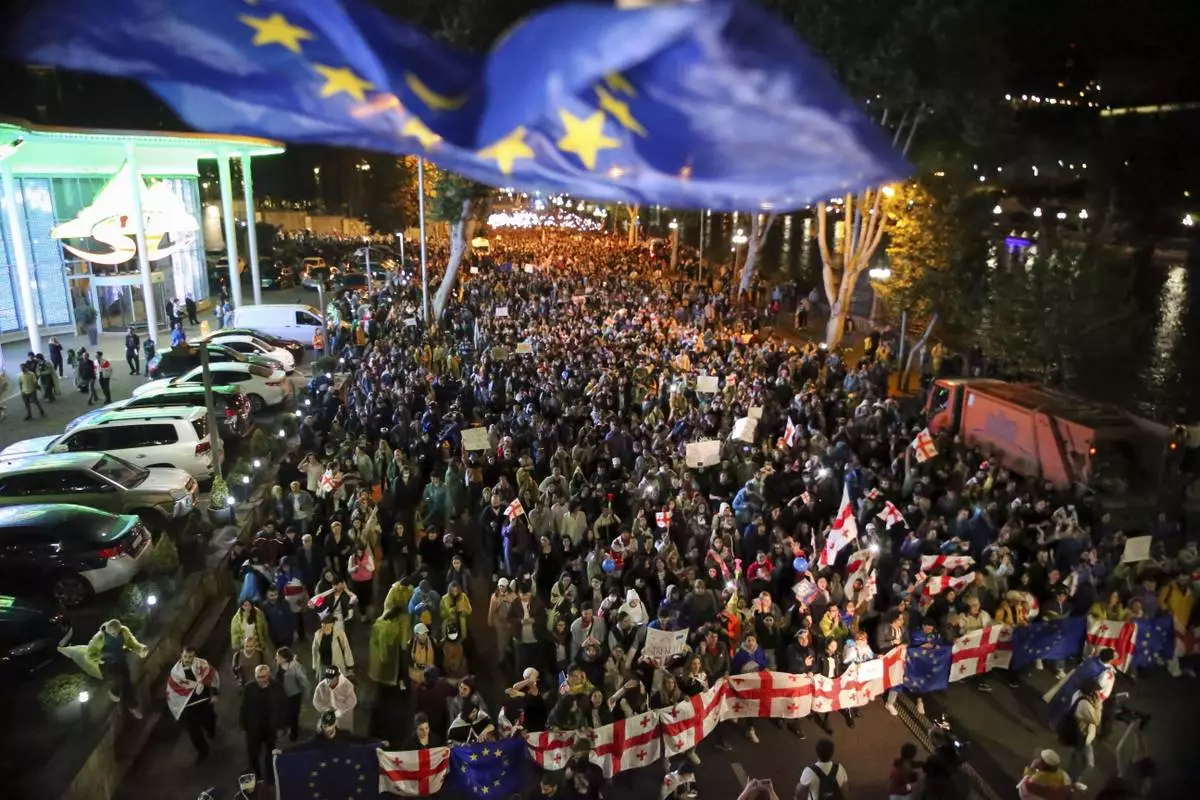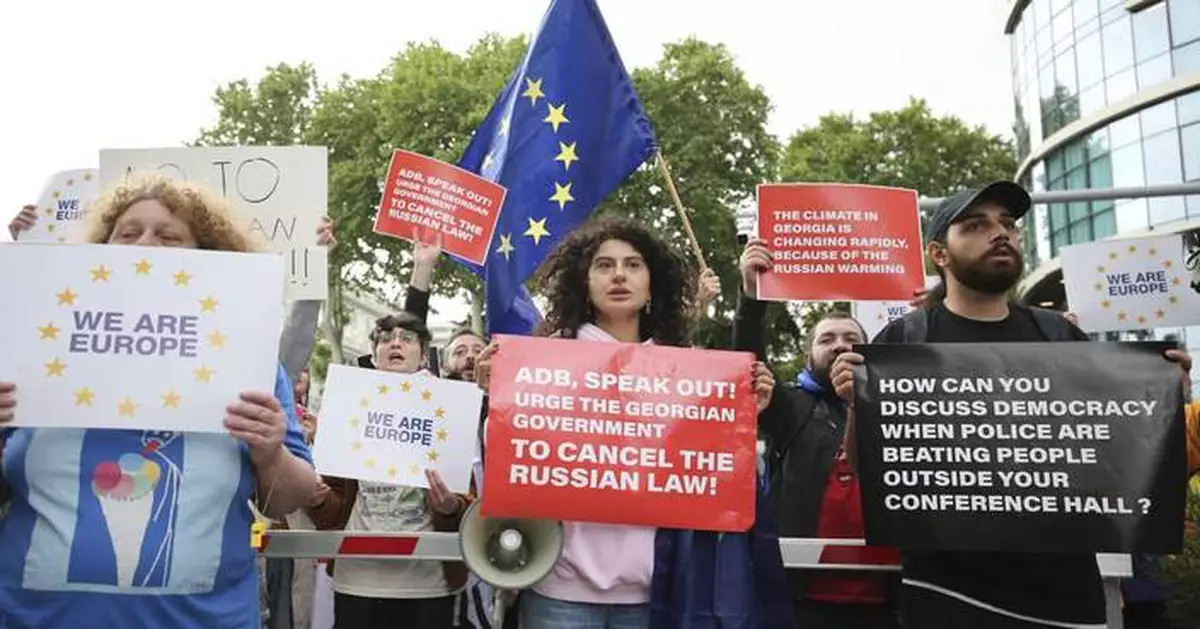TBILISI, Georgia (AP) — Several thousand Georgians marked Orthodox Easter with a candlelight vigil outside Parliament on Saturday evening as daily protests continue against a proposed law that critics see as a threat to media freedom and the country’s aspirations to join the European Union.
The proposed bill would require media, non-governmental organizations and other nonprofits to register as “pursuing the interests of a foreign power” if they receive more than 20% of their funding from abroad.
Protesters and the Georgian opposition denounce it as “the Russian law,” saying Moscow uses similar legislation to stigmatize independent journalists and those critical of the Kremlin.
Demonstrators crowded along a broad avenue in Tbilisi late Saturday, clutching Georgian and EU flags, as a small choir sang Easter songs and activists bustled about distributing food, including hand-painted eggs and traditional Easter cakes.
Unlike at mass rallies earlier in the week, which met with a heavy police response, the atmosphere was peaceful. Unarmed police officers stationed sparsely at the vigil's sidelines received festive foods along with the protesters.
Most Western churches observed Easter on April 9, but Orthodox Christians in Georgia, Russia and elsewhere follow a different calendar.
“It is the most extraordinary Easter I have ever witnessed. The feeling of solidarity is overwhelming, but we should not forget about the main issue,” activist Lika Chachua told The Associated Press, referring to the proposed legislation.
The legislature approved a second reading of the bill Wednesday. The third and final reading is expected later this month.
The proposal is nearly identical to a measure that the governing Georgian Dream party was pressured to withdraw last year after large street protests.
Georgian Dream argues the bill is necessary to stem what it deems as harmful foreign influence over the country’s political scene and to prevent unidentified foreign actors from trying to destabilize the country’s political scene.
But EU foreign policy chief Josep Borrell has described the parliament’s move as “a very concerning development” and warned that “final adoption of this legislation would negatively impact Georgia’s progress on its EU path.”
Russia-Georgia relations have been strained and turbulent since the collapse of the Soviet Union, and the two fought a brief war in 2008 that ended with Georgia losing control over two Russia-friendly separatist regions. In the aftermath, Tbilisi severed diplomatic ties with Moscow, and the issue of the regions’ status remains a key irritant, even as relations have somewhat improved.
The opposition United National Movement accuses Georgian Dream, which was founded by Bidzina Ivanishvili, a billionaire who made his fortune in Russia, of serving Moscow’s interests. The governing party vehemently denies that.

Demonstrators march during an opposition protest against "the Russian law" in the center of Tbilisi, Georgia, on Friday, May 3, 2024. The parliament of Georgia has cancelled its plenary session following massive protests against a proposed law that critics fear will stifle media freedom and endanger the country's bid for membership in the European Union. (AP Photo/Zurab Tsertsvadze)

Demonstrators gather outside the Biltmore Hotel in Tbilisi where Asia Development Bank Annual set the 57th Annual Meeting of the ADB Board of Governors which is held to denounce the "Russian Law" and make their protest heard internationally in the center of Tbilisi, Georgia, on Friday, May 3, 2024. The parliament of Georgia has cancelled its plenary session following massive protests against a proposed law that critics fear will stifle media freedom and endanger the country's bid for membership in the European Union. (AP Photo/Zurab Tsertsvadze)










